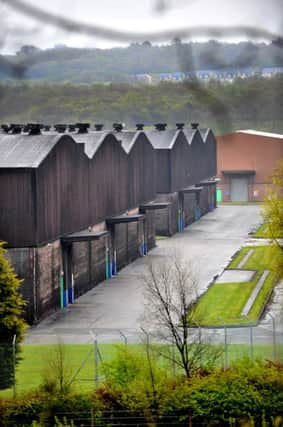Couple win right to sue whisky giant


Thomas and Gail Chalmers, of Woodlea Gardens, Bonnybridge, allege the evaporated alcohol from maturing casks stimulates the growth of an unsightly black fungus which has discoloured their home and car.
The couple raised an action at the Court of Session in Edinburgh suing distillers Diageo for £100,000.
Advertisement
Hide AdAdvertisement
Hide AdHowever the drinks firm sought to have the case dismissed at a procedural hearing arguing the claim was of “an unprecedented nature with the potential to have radical impacts on a major industry”.
A judge ruled today that the couple’s action can go ahead to a hearing of evidence.
Lord Ericht said: “There is no doubt that damages for nuisance can be awarded by the Scottish courts.”
But the judge said it was essential the circumstances were fully established before a decision was made.
Advertisement
Hide AdAdvertisement
Hide AdHe said: “In my opinion the pursuers have pled a sufficient case to allow their averments on liability to go to proof. They have not pled a sufficient case on loss, but I shall give them an opportunity to seek leave to amend.”
Craig Connal QC, for Diageo, argued the distiller, which ages whisky in nine bonded warehouses at the site near the Woodlea Park development where the couple own their home, had a long-standing operation and the Chalmers properties were “incomers”.
He said Diageo was carrying out the business with all the required permits issued by public authorities and that many of the couple’s assertions had been rejected by an independent public body.
For the Chalmers it was maintained the bonded warehouse releases ethanol at a level which germinates the fungus Baudoinia compniacensis – known as the “warehouse staining fungus” – which covers their property in a black coating and that amounted in law to a nuisance.
Advertisement
Hide AdAdvertisement
Hide AdThey alleged the growth has attacked wooden garden furniture and paving stones and a sundeck was destroyed and maintain it has discoloured garden tables and chairs, potted plants and outdoor toys and left the roof with visible black staining.
They complain that they need to have their home and car cleaned regularly in a continuing attempt to control the fungus.
In the action the couple accept that during the maturing of whisky air enters casks and ethanol and other substances leave them.
But they maintain that it is not an essential part of the process “that the ethanol is permitted to escape the premises and to damage neighbouring properties”.
Advertisement
Hide AdAdvertisement
Hide AdIn its defences to the claim Diageo said: “Cosmetic discolouration has no impact on property value and has had no impact on the value of properties in the Bonnybridge area.”
It said its warehouse development became operational in 1979 but the neighbouring estate which was built on undeveloped land was built in 2002.
Diageo said any ethanol derived from its operation in the area where the Chalmers live “is at levels so low as not to be capable of ready detection and measurement”.
It said that in Bonnybridge a substantial number of volatile organic compounds (VOCs) were likely to be present in the environment in extremely small amounts.
Advertisement
Hide AdAdvertisement
Hide Ad“These VOCs derive from a range of sources including motorway and local traffic. Ethanol is an ingredient in current blends of motor fuel.”
Diageo maintain the spirit is not only being produced in accordance with all statutory and regulatory requirements but is “being matured in a manner essential for the resulting product to qualify for protection as Scotch Whisky”.
The firm stated: “That requires both ventilation and the natural exposure of the maturing product to the prevailing climate. Whisky has been matured in Scotland under these and predecessor requirements for very many years, in accordance with what is deemed appropriate by specialist authorities focused on safety, the environment and the regulation of the product.
“The Scotch Whisky Regulations 2009 prescribe the maturation of spirit, in oak casks, of a capacity not exceeding 700 litres, in Scotland, for not less than three years, in a permitted place.
Advertisement
Hide AdAdvertisement
Hide Ad“They require the spirit to retain the colour, aroma and taste derived from the raw materials used in the method of production and maturation.”
In their action the couple said the prevalence of black fungus on properties within their area was well known. They maintain that the value of their home has been reduced as a result of the fungus.